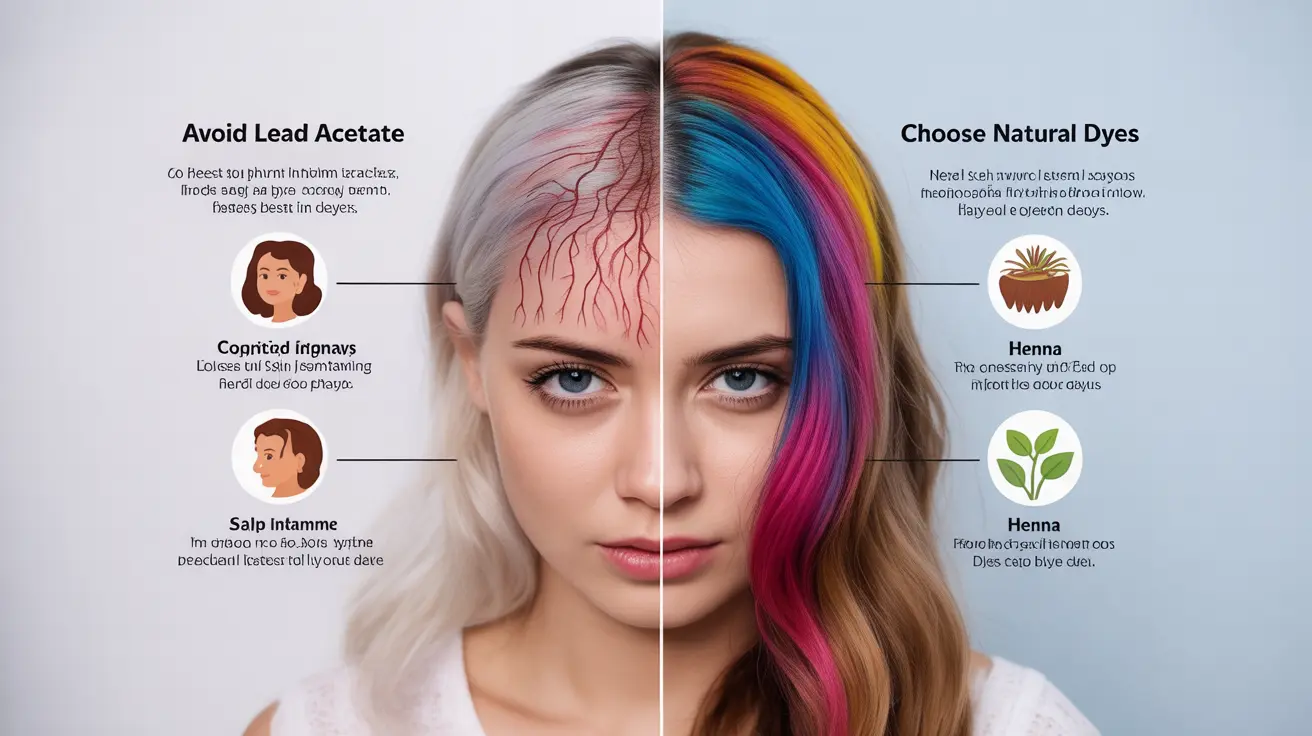For decades, men have turned to Grecian Formula hair dye to combat graying hair. However, recent concerns about its ingredients, particularly lead acetate, have raised significant health and safety questions. Understanding the potential side effects and risks associated with this product is crucial for making informed decisions about hair care.
This comprehensive guide examines the health implications of Grecian Formula use, particularly focusing on products that contained lead acetate, and provides information about safer alternatives for men seeking to maintain their desired hair color.
Understanding Lead Acetate in Hair Dyes
Lead acetate was a primary active ingredient in traditional Grecian Formula products, functioning as a progressive hair dye that gradually darkened gray hair. The compound works by interacting with proteins in the hair shaft, creating a gradual color change over time.
The FDA's recent ban on lead acetate in hair dye products stems from new research revealing that this ingredient can pose serious health risks through skin absorption and accidental ingestion.
Health Risks and Side Effects
Immediate Side Effects
- Scalp irritation and itching
- Skin redness and inflammation
- Burning sensation during application
- Allergic reactions
- Hair brittleness and damage
Long-term Health Concerns
- Nervous system damage
- Cognitive function impairment
- Kidney problems
- High blood pressure
- Reproductive health issues
- Memory and concentration difficulties
Cross-Contamination Risks
One of the most concerning aspects of lead acetate-based hair dyes is their potential to affect others through:
- Transfer to hands and surfaces
- Contamination of towels and clothing
- Exposure through shared bathrooms
- Secondary contact with family members, especially children
- Residual presence on personal care items
Current Safety Status and Regulations
Following the FDA's ban on lead acetate in hair dyes, manufacturers have been required to reformulate their products. Current versions of Grecian Formula are supposed to be lead-free, utilizing safer alternative ingredients. However, consumers should remain vigilant about checking product ingredients and manufacturing dates.
Safe Alternatives for Gray Hair Coverage
Several safer options exist for men looking to manage their gray hair:
- Plant-based hair dyes with natural ingredients
- Synthetic dyes free from heavy metals
- Henna-based products
- Gradual color-depositing shampoos
- Professional salon treatments
Frequently Asked Questions
- What are the common side effects of using Grecian Formula hair dye containing lead acetate?
Common side effects include scalp irritation, skin inflammation, burning sensations during application, and potential allergic reactions. Long-term use of lead acetate-containing products can lead to more serious health issues affecting the nervous system and cognitive function.
- How does lead acetate in men's hair dye like Grecian Formula affect overall health?
Lead acetate can be absorbed through the skin and potentially impact various body systems. It may cause nervous system damage, cognitive issues, kidney problems, high blood pressure, and reproductive health concerns when exposed over extended periods.
- Can lead from Grecian Formula hair dye harm family members or children through contact?
Yes, lead from hair dye can transfer to surfaces, towels, and hands, potentially exposing family members to the toxic substance. Children are particularly vulnerable to lead exposure, making proper handling and awareness crucial.
- Is it safe to use Grecian Formula hair dye after the FDA banned lead acetate?
Current Grecian Formula products should be reformulated without lead acetate following the FDA ban. However, consumers should carefully check product labels and manufacturing dates to ensure they're using the newer, lead-free formulations.
- What are safer alternatives to hair dyes that previously contained lead acetate like Grecian Formula?
Safer alternatives include plant-based dyes, synthetic dyes free from heavy metals, henna products, color-depositing shampoos, and professional salon treatments. These options provide effective gray coverage without the health risks associated with lead acetate.




